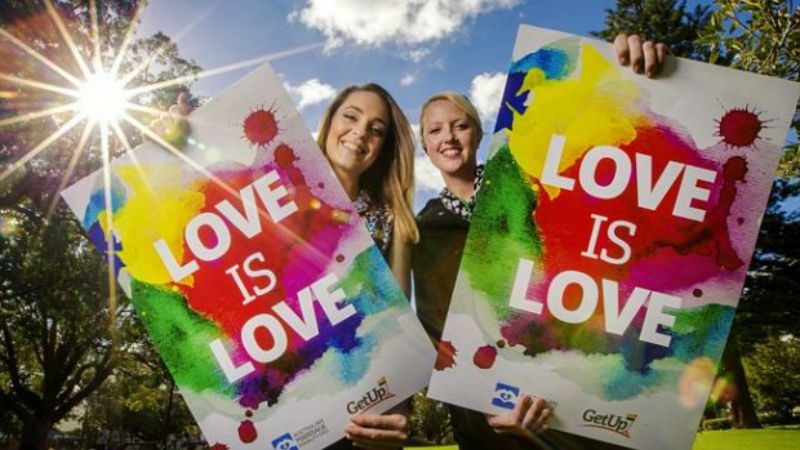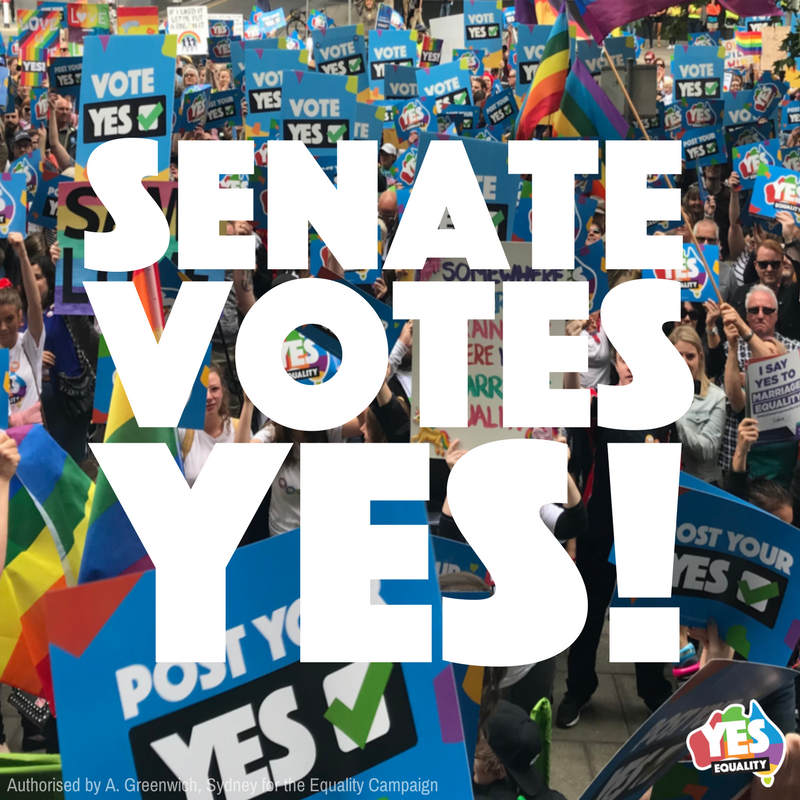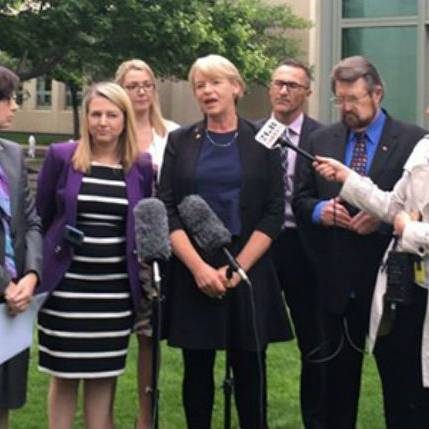 The bill is unlikely to go to vote in the one-hour time frame of the debate.
The bill is unlikely to go to vote in the one-hour time frame of the debate.
Following a move on Tuesday by the Greens, who blocked a vote on their marriage equality bill, the Australian Senate plans on debating marriage equality this Thursday.
Currently, Prime Minister Malcolm Turnbull plans on holding a plebiscite after the next election. Recent reports have estimated that a plebiscite could cost the country close to $525 million. Concrete plans for the plebiscite have not been revealed and the government is struggling to agree on certain aspects, including the issue of public funding and anti-discrimination law exemptions.
On Tuesday, Labor leader Bill Shorten expressed dismay about Prime Minister Turnbull advocating for a plebiscite. He said, “Just imagine the damage to a young person’s sense of self when they read taxpayer-funded advertising painting them as a second-class citizen. Imagine the effect on children who see Australian government-sponsored advertisements claiming their loving parents are not fit to marry. I have to say, it is appalling that Turnbull, who knows better, is prepared to risk so much harm and waste so much money on such a low tactic.”
The debate is planned to last one hour, creating an unlikely time frame for the issue to be discussed properly.
Penny Wong said, “The Greens had an opportunity to bring it to a vote this morning, and they squibbed it, and they now want to make Australians believe that somehow an hour-long debate is the same. This is cynical politics at its best. Senator Di Natale led them over to the other side to sit with people like Senator Abetz and Senator Bernardi, who are vehemently opposed to same-sex marriage.”
Liberal Democrat Senator David Leyonhjelm, who is re-introducing the bill that would define marriage as “a union between two people,” said, “Politicians should do their job. This could be the last chance to save taxpayers $160 million. It will also avoid a needless extended acrimonious debate. I call on both the Greens and Prime Minister Turnbull to demonstrate the courage of their convictions.”
While the bill would still need to be introduced and passed by the House of Representatives to become law, Australian Marriage Equality National Director Rodney Croome said, “If a marriage equality bill passes the Senate, it will be a huge step forward. It will send a message to the government and the public that we don’t need a plebiscite, that it can be resolved in parliament, and it would be a huge morale boost for equality supporters after years of campaigning.”
Croome also said, “It would increase pressure on the government for it to be debated and passed in the lower house.”



